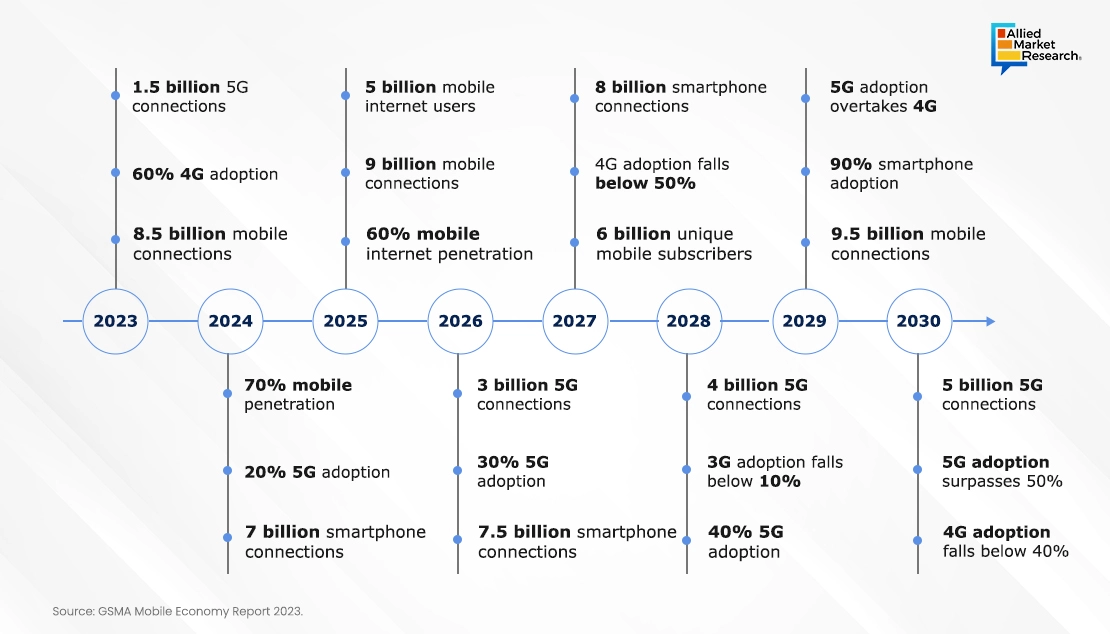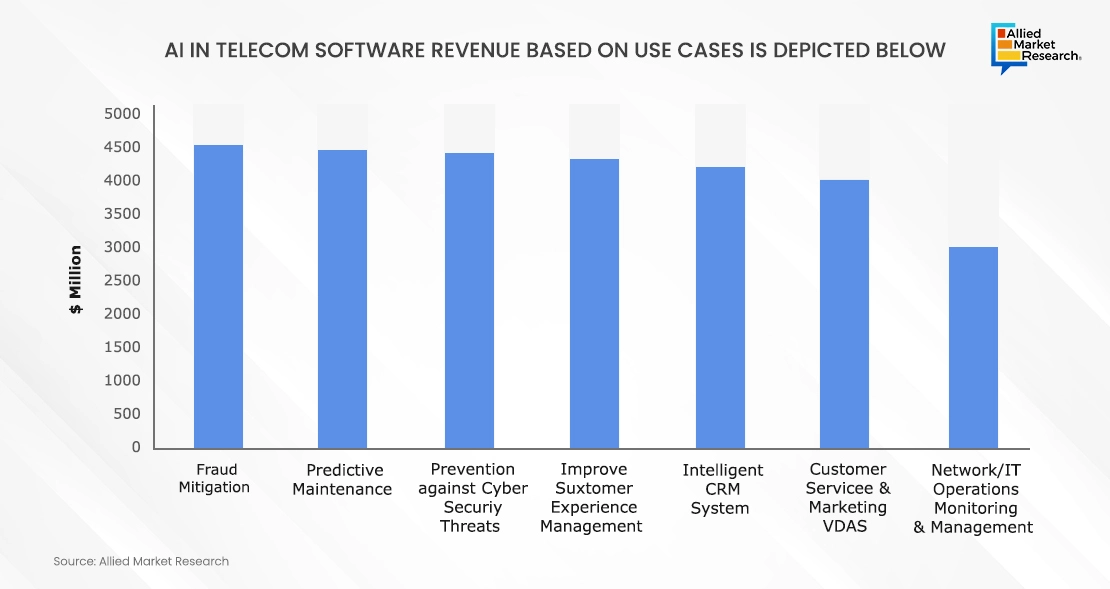Impact of AI on Personalization of Telecom Services

“Telcos are increasingly turning to personalized commercial marketing strategies. However, the integration of such initiatives with service-focused outreach is key to driving sustainable growth”.
The Role of Personalized Strategies
Many telecommunication companies are leveraging advanced customer engagement strategies. AI-powered tool is the heart of such strategies that utilize real-time data-driven insights to achieve various objectives, including enhancing cross-selling and upselling, mitigating churn, enhancing retention rates, and acquiring new customers. However, telcos must recognize that these marketing initiatives may not yield optimal results without proactive and predictive outreach tailored to address service-related issues and customer concerns. In short, customers who experience inconveniences such as inconsistent connectivity or other issues are less inclined to respond positively to the latest offers or promotions. Thus, a comprehensive approach that integrates personalized service-centric strategies with commercial marketing efforts is essential for maximizing customer engagement and loyalty in the competitive telecom landscape.
Global Mobile Connectivity on the Rise
According to the GSMA mobile economy report 2023, mobile connections across the globe significantly increased over the years. The favourable government regulations and introduction of affordable internet plans are acting as a catalyst for the same. The below figure indicates the growth of mobile connection over the years and the forecast made by the organization:

The organization in its report also states that the penetration of mobile subscribers across the globe in 2022 was 68%, which is expected to surge to 73% by 2030, growing at a 2% CAGR over the years 2022-2030. Significant portion of mobile users fall under the tech-savvy customer category, which means they exhibit a keen awareness and demand for real-time services, underscoring the importance of responsiveness and agility in meeting their needs. These customers, equipped with an array of digital tools and heightened expectations regarding their telecom experiences, demand tailored solutions that cater to their individual preferences and needs. In response, telecom companies are emphasizing developing data-driven strategies to analyze customer behavior and preferences. Further, they are leveraging advanced analytics, artificial intelligence, and machine learning algorithms to gather insights and deliver personalized offerings to customers.
The Impact of AI on the Telecom Industry and the Way They Operate
Artificial Intelligence (AI) has become a disruptive force in the quickly changing telecom industry, changing how telecom services engage with and serve their clients. The incorporation of AI into personalization techniques is among the transformation's most important features. Prominent American telecom providers including AT&T, Comcast, and Verizon are integrating AI into numerous operations. Personalized discounts, automated chatbots, and expedited customer support procedures are just a few names on the list. Some of the examples of telecom service providers using AI are listed below:
Verizon Communications
One of the biggest communication service providers in the world, Verizon, is making significant investments in AI and ML technologies to enhance customer service and network performance. Recently, a new intelligent platform that is making it easier to develop network apps and expedites the launch of Verizon 5G sites was created through a partnership with mobile network operator Cellwize. Other AI-related alliances include those with Google and IBM. With sophisticated natural language processing (NLP) tools, Google's Cloud Contact Center AI service is providing Verizon customers with a more seamless and natural method to communicate with Verizon's support staff.
Vodafone
The highly intelligent text bot TOBi, developed by the British telecom behemoth Vodafone Group, is an assistant app that helps users with troubleshooting, managing subscriptions, and buying new devices and services.
AWS Migration Services
Working together, Intellias assisted a large national telecom provider in moving to AWS for improved business intelligence and data processing. Through AWS migration, the telecom company aimed to reduce expenses, enhance scalability, and hasten expansion. Intellias quickly evaluated resource requirements, estimated infrastructure costs, and created a tailored cloud solution architecture within a two-month proof of concept. With this partnership, we hope to save a lot of money on infrastructure, increase income, and improve customer satisfaction by providing individualized services. The successful partnership between the telecom giant and Intellias has paved the way for more joint efforts in delivering high-quality solutions.

Deutsche Telekom
Deutsche Telekom has been investing a lot in artificial intelligence on several fronts. Deutsche Telekom is actively incorporating AI components into its infrastructure and service offering, starting with intelligent business planning tools and an AI-powered chatbot named Tinka that can respond to over 1500 consumer inquiries.

As the above graph depicts the major revenue from various AI-enabled software, the customer-focused software comprises of a large share. For example, customer experience management software, Intelligent CRM systems, and Customer service & marketing VDAS are all AI-enabled software that are being rapidly adopted by the global communication service providers to manage the constantly growing customer base and enhance their service quality.

Exploring the Power of Personalized Service
Telecom companies are facing challenges in maintaining strong connections with their customers due to changing expectations set by digital-native services. The constant evolution of customer preferences is leading to the commoditization of connectivity, emphasizing the importance of providing high-quality telecom services. McKinsey reports that there is a significant correlation between customer experience and retention, with an overlap of 80-90% in some areas. Customers who have negative experiences, such as poor connectivity or unexpected charges, are less likely to respond positively to marketing campaigns, even if the telecom offers competitive prices. Even if they eventually receive the intended result, customers who endure lengthy wait times, are sent from agent to agent, or have to make multiple calls to fix a problem, are likely to remember the tough experience. Furthermore, clients may face excessive and annoying communications when telecommunication companies operate with separate commercial and service capabilities. This often leads to clients receiving unnecessary messages, causing some to even opt out of marketing communications. In one instance, a telecom operator discovered that their clients were bombarded with up to five messages per week from different departments, including information about network disruptions and cross-selling offers within the same hour.
An integrated next-best-experience engine can greatly improve the consumer experience while also cutting costs. By ensuring consistent communication and using automated outreach, a telco can save money and provide better service.
The Road ahead
In the next five years, people are expected to want personalized experiences in all their interactions with telecom companies, including services, which are important for customer satisfaction. With the progress of 5G tech, telecom companies can go beyond basic connections and grab a slice of a $100 billion value pool in the next five years. In the upcoming years, telecoms should develop a variety of new revenue streams, such as ecosystem solutions that include media and entertainment services or credit risk assessment products targeted at financial institutions. Telecom companies can enhance their efforts to create value in innovative ways by incorporating personalized services on a larger scale.
Telcos can explore new opportunities in industries like home security or finance by using their enhanced data capabilities. They can also create separate business units to offer these services to telecoms and other customer-facing organizations. At this potential transformation lies the next-best-experience engine, a pivotal integration of competencies from both the commercial and service sectors. Telcos can get ahead by quickly developing this powerful tool, giving them more time to test and improve for better profits. They will also contribute to the establishment of higher consumer standards for all telecom companies.
Embracing AI in telecom services presents a significant opportunity for vendors to revolutionize their business practices. By exploring advanced algorithms and data analytics, vendors can gain deeper insights into customer preferences and behaviour, leading to more tailored service offerings. Partnering with Allied Market provides vendors with in-depth insights and expertise in harnessing AI for personalizing telecom services. AMR's comprehensive market research reports offer deep analysis of industry trends, customer preferences, and competitive landscapes, helping them make informed decisions and stay ahead of the curve. By incorporating AI-powered personalization into their business strategies, merchants can enhance customer satisfaction, drive revenue growth, and stay ahead of the competition in today's rapidly evolving telecom landscape.



